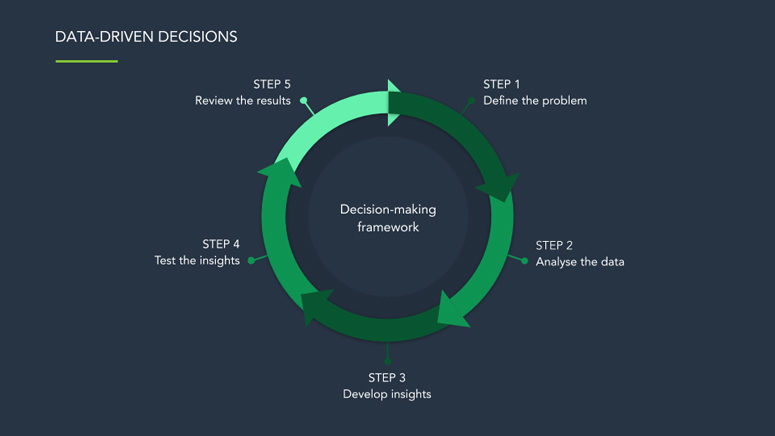The proverbial saying “The early bird catches the worm”, holds as much significance in the realm of business as it does in our daily lives. The word of business us fast-paced. Speed and Agility aren’t merely advantageous traits; they have become indispensable skills that every business must possess. Achieving efficiency and agility is no longer a choice but a necessity, and businesses are turning to Sales Acceleration software to stay ahead in this competitive landscape.
Traditionally, businesses relied on their Unique Selling Proposition (USP), products, or sales strategies. However, as the world evolves and markets expand, companies are embracing advanced technology to gain a competitive edge. Harnessing the power of cutting-edge technology has become a strategic imperative for modern businesses.
In this article, we will explore the concept of sales acceleration software and its pivotal role in enhancing business performance. We will delve into how integrating this technology can revolutionize your business operations. Additionally, we will provide insights into some of the top-notch sales acceleration software available in the market today.
1. Understanding Sales Acceleration: What Sets It Apart from Conventional Sales?
2. Key Features of Sales Acceleration Tools: Enhancing Efficiency and Productivity
3. Leading Sales Acceleration Tools: A Comparative Analysis for Informed Decision-making
Understanding Sales Acceleration
Traditionally,cold calls and meeting prospects face-to-face used to be the go-to strategies. While these tactics still hold some relevance, the rise of eCommerce, digital advertising, social media, and instant communication has pushed them into the background. Businesses that fail to adapt to this digital era are finding themselves left behind or struggling to keep up.
Imagine strolling through a bustling Saturday morning market, surrounded by vendors all eager to catch your eye and make a sale. These vendors understand the importance of acting swiftly; they know they have only a brief moment to capture your attention before the next competitor seizes the opportunity. So, how do they win your business?
The key lies in conveying the right message at the right time. Businesses must find a way to stand out amidst the noise, ensuring that their offerings are presented to prospects precisely when they are most receptive. While intuition plays a role, relying solely on it isn’t enough. That’s where technology steps in to assist: enter sales acceleration software.
Sales acceleration software isn’t here to replace your sales team; it’s here to empower them. It provides a competitive edge, enabling your team to operate swiftly and efficiently. These tools come with a range of features, including automated sales outreach, advanced analytics, and scoring systems.
By utilizing this software, businesses can target their audiences more precisely than ever before. They can engage effectively with these audiences, leading to swift and efficient deal closures at the opportune moment. These tools aren’t about shouting the loudest to grab attention; they’re about building meaningful connections with potential customers instead.
ConvergeHub Sales Module: Making Sales a Breeze
ConvergeHub’s Sales module comes with a diverse range of features and tools tailored to enhance your sales process. Here’s a breakdown of key functionalities that helps you understand how it helps increase sales.
1. Automated Outreach: Save valuable time by automating outreach efforts. Instead of spending hours on manual phone calls and emails, the software takes charge. It ensures your messages are sent at optimal times and engages with leads on your behalf. With minimal effort, you can connect with more prospects, creating a win-win situation.
2. Lead Scoring: Not all leads are equal. Lead scoring enables you to prioritize leads based on their likelihood to convert. The system automatically assigns scores based on specific behaviors or characteristics displayed by the lead. This way, you can allocate your resources and focus on leads most likely to generate revenue.
3. Analytics: A robust analytics suite provides valuable insights into your business performance. You can gain a deep understanding of key metrics related to sales performance, effectiveness of marketing campaigns, and customer preferences. Armed with this knowledge, you can significantly improve your conversion rates.
4. Integrations: Seamless integration with your existing tech stack is crucial. Ensure the software is compatible with your chosen CRM system. A CRM connection allows you to track each customer’s journey through your sales process, enhancing your overall customer relationship management.
5. Templates: Essential for both new and experienced sales professionals, playbooks and templates are invaluable resources. Sales acceleration software often includes pre-loaded templates for emails and call scripts. These resources serve as your sales guides, clearly outlining the ideal customer journey and improving your communication strategies.
6. Notifications: Timely action is essential in sales. Choose a system that provides real-time notifications. These notifications alert you precisely when to take action, such as when a proposal is read or an email is opened. With this information at your fingertips, you can plan your follow-ups effectively and capitalize on every opportunity.
These are some of the powerful features of ConvergeHub Sales Module. It helps streamlining sales process, engage with prospects more efficiently, and ultimately boost your business’s revenue and success.
Key Takeaway
To outshine your competitors, swift action and the right tools are essential. Choosing the correct sales acceleration software is like investing in a valuable asset that can elevate and refine your sales process. By combining speed and strategy effectively, you can leave your competitors trailing behind.
While automation and data play crucial roles, don’t overlook the importance of your human sales team. Their personal touch is invaluable.
ConvergeHub has the potential to transform your business significantly by constantly adapting itself as per the market and business needs. Make sure it seamlessly integrates with your existing software and tools.
When it comes to maximizing the efficiency and speed of your email outreach, you need a tool that can facilitate this seamlessly. Instantly offers precisely that, allowing you to enhance your email outreach starting today.













